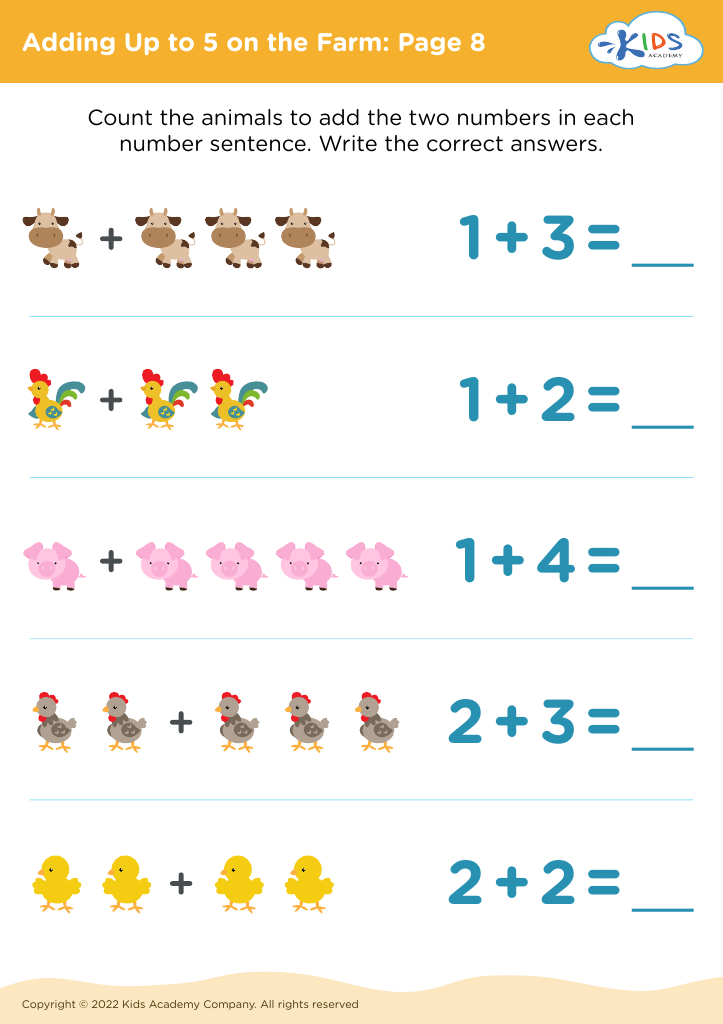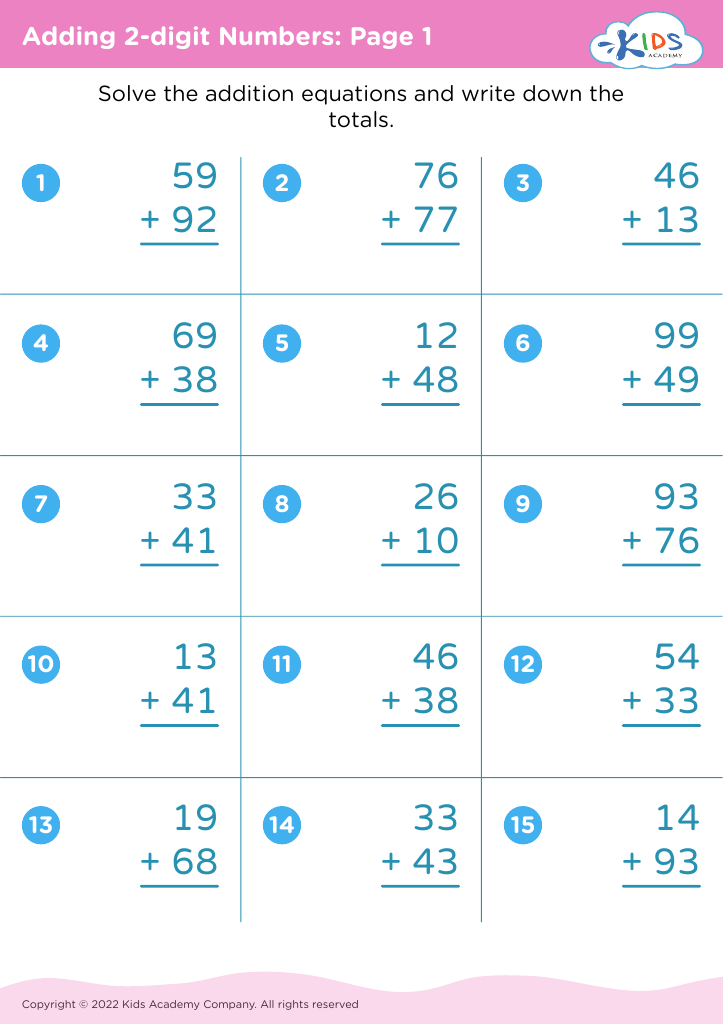Developing counting skills Addition & Subtraction Worksheets for Ages 4-9
3 filtered results
-
From - To
Welcome to our "Developing Counting Skills: Addition & Subtraction Worksheets for Ages 4-9"! Our thoughtfully designed worksheets aim to bolster your child's foundational counting abilities while making math fun and engaging. Perfect for young learners, these resources guide children through essential counting principles, helping them transition smoothly into addition and subtraction concepts. Each worksheet is crafted with age-appropriate activities that nurture critical thinking and problem-solving skills. With vibrant illustrations and interactive formats, children will love practicing their math skills while gaining confidence in their abilities. Explore our collection today and support your child's journey toward mathematical success!
Developing counting skills and the foundational concepts of addition and subtraction in children aged 4-9 is crucial for several reasons. First, these skills form the basis of all future mathematics. Mastery of counting lays the groundwork for understanding numbers, enabling children to progress to more complex mathematical concepts later on.
Furthermore, counting, addition, and subtraction enrich cognitive development. They foster critical thinking, problem-solving abilities, and logical reasoning. By engaging in these activities, children learn to analyze situations, make decisions, and find solutions—skills that are essential in everyday life and later academic pursuits.
Additionally, early proficiency in these areas helps build confidence. Children who grasp counting and basic operations feel more secure in their mathematical abilities, resulting in a positive attitude towards math as they continue their education. This, in turn, lowers the likelihood of math anxiety.
Engaging parents and teachers in this process also reinforces learning in a supportive environment. Interactive activities, like counting games or using real-life scenarios, make learning enjoyable and contextual. Ultimately, investing in the development of these fundamental skills helps children succeed academically and equips them with essential life skills that go beyond the classroom.



















